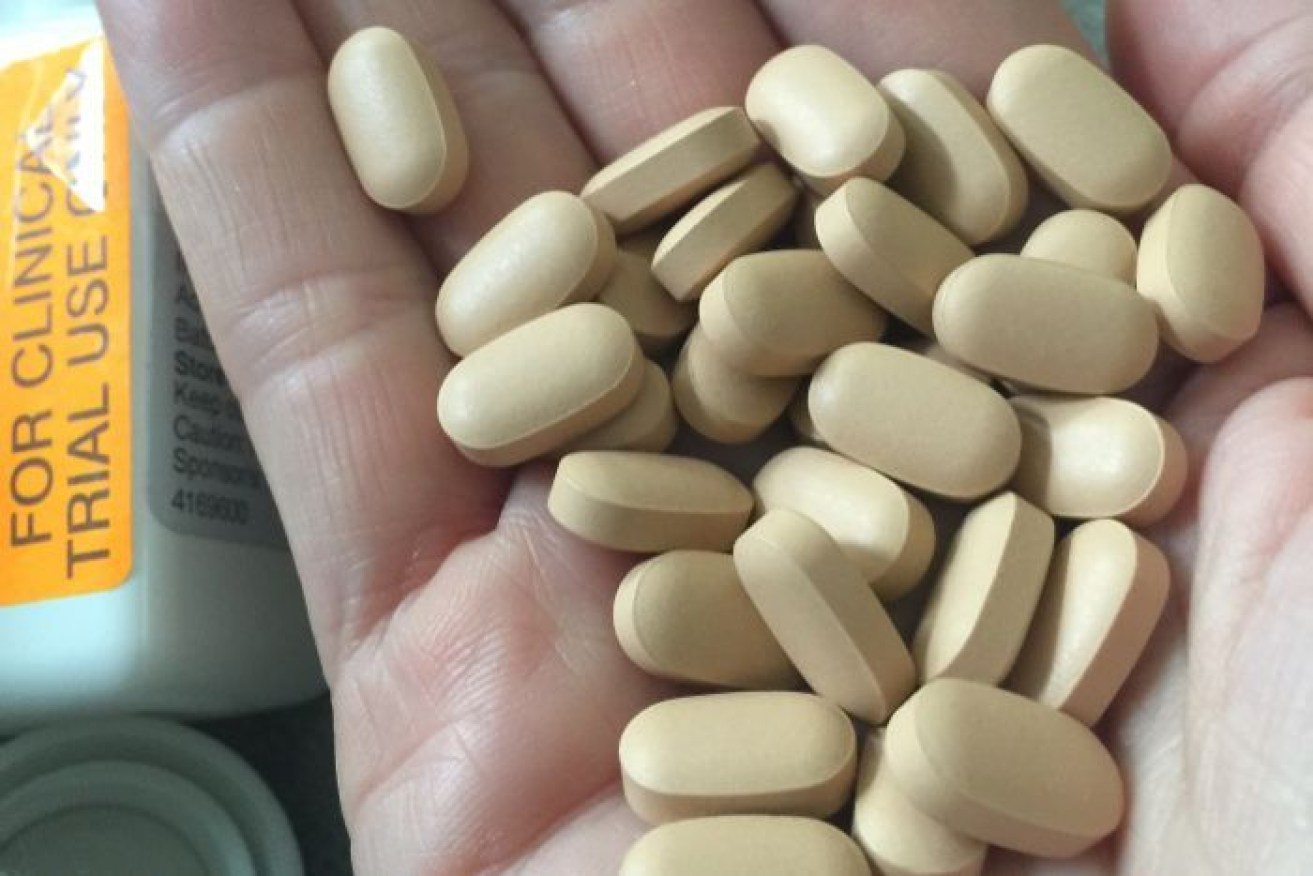Doctors want more subsidies for rare cancer treatments

New cancer treatments are working, but can be prohibitively expensive. Photo: ABC
Oncologists say thousands of cancer patients are either missing out on medication or being forced to spend large portions of their savings on potentially life-saving treatments because of gaps in the Pharmaceutical Benefits Scheme (PBS).
The National Oncology Alliance (NOA) is calling on the Pharmaceutical Benefits Advisory Committee (PBAC) to subsidise more rare cancer treatments.
Queensland man Colin White was given just several months to live after being diagnosed with a rare small cell carcinoma of the lymph gland.
But 18 months later, the 48-year-old is actually getting better after undergoing a new immunotherapy treatment.

Queensland man Colin White, who is undergoing a new immunotherapy treatment, and his wife Kim. Photo: ABC
The financial burden of the treatment was significant, with each treatment alone initially costing about $5000.
His wife Kim said she came across it via her own research and with help from their GP.
“We’d asked many times previously about alternative treatments and things like that, and they said no, it’s extremely expensive,” she said.
“Once you reach $60,000 it drops down to $700 a treatment. We’re just lucky that we’re in a position to be able to afford it at the moment – some people are not so lucky.”
Patients paying enormous costs for some treatments
The National Oncology Alliance says the Whites’ experience is typical for people who are recommended cancer treatments that are not listed on the PBS.
One woman’s desperate search for a treatment that could extend her life
The warning signs were easy to dismiss, but when doctors eventually made a diagnosis giving her just six to 12 months to live, Andreea Stoenescu began a race against time.
“We determined there are approximately 3500 Australians paying for treatment at a cost of around $200 million, if you assume a treatment costs $60,000 per patient,” NOA co-chair Andrew Vines explained.
“There are about 6,000 patients who are having that conversation with their oncologist but are subsequently not getting that treatment. The main reason is the cost of non-PBS listed medicines.”
These findings come from a controlled sample survey of 68 oncologists, from a total of almost 450 who work in Australia. The oncologists who took part where asked about how they treat and advise cancer patients.
The NOA is supported by fundraising and a combination of government and pharmaceutical company grants.
Drug companies must lower their prices, says Cancer Council
Cancer Council Australia CEO Sanchia Aranda said patients with less common cancers were disadvantaged when it came to accessing medicines.
Professor Aranda said one of the biggest challenges in subsidising cancer medicines was the pricing policies of the drug companies.
“If the drug companies brought patent-protected medicines into the market at substantially lower cost, it would be much easier to fast-track their approval for subsidisation once they’ve been assessed for safety and cost-effectiveness,” she said.
“Ultimately it’s individual drug companies that set the prices until a medicine comes off patent.
“The global community need to put pressure back on the industry to reconsider its pricing policies.”
But some other oncologists believe the system already works well, and most of their patients are not out of pocket.
NOA co-chair Andrew Vines said the Alliance had been calling on the PBAC to find new ways to list some of these new immunotherapy treatments on the PBS.
“[We need] ways and means of allowing pharmaceutical companies to present an application to list a medicine — particularly an immuno-oncology medicine — across multiple cancer types,” he said.
“What we need to find is a mechanism that is responsible. No-one’s suggesting that we go out and waste taxpayers’ money.”
Mr Vines said he hoped a meeting of the PBAC this Friday would consider the issue.
That meeting is partly in response to a request from Health Minister Greg Hunt.
Earlier this year he asked the committee to consider options for listing cancer immunotherapies medicines, which treat multiple tumour types, on the PBS.
A spokesperson for the minister said the Government had recently invested almost $250 million in rare cancer drug trials to deliver medicines which are not yet on the PBS.
“[Mr] Hunt has already asked the PBAC to consider options for listing cancer immunotherapies medicines, for the treatment of multiple tumour types, on the PBS,” the spokesperson said.








